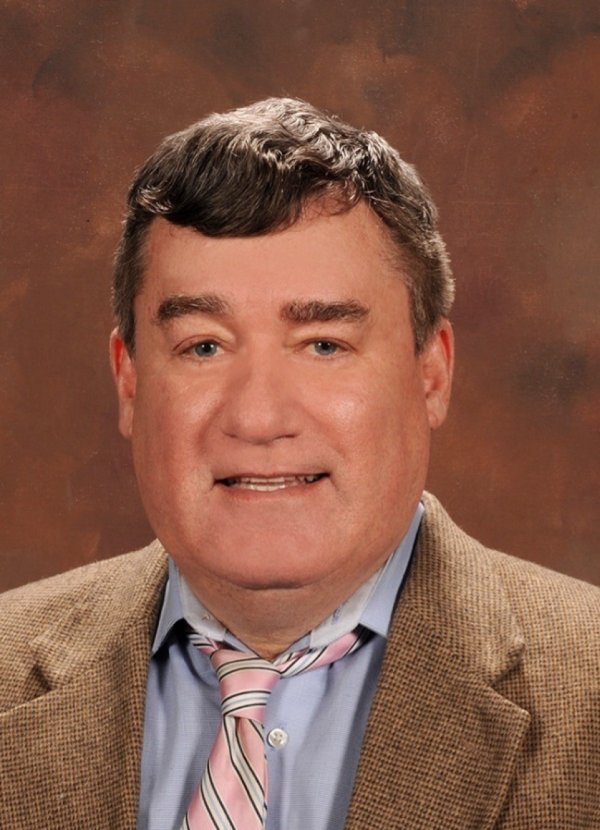Steven S. Coughlin1, Jin Ye Yeo2
1Department of Biostatistics, Data Science and Epidemiology, School of Public Health, Augusta University, Augusta, USA; 2JHMHP Editorial Office, AME Publishing Company
Correspondence to: Jin Ye Yeo. JHMHP Editorial Office, AME Publishing Company. Email: jhmhp@amegroups.com
This interview can be cited as: Coughlin SS, Yeo JY. Meeting the Editorial Board Member of JHMHP: Dr. Steven S. Coughlin. J Hosp Manag Health Policy. 2024. https://jhmhp.amegroups.org/post/view/1720073431.
Expert introduction
Dr. Steven S. Coughlin (Figure 1) has a broad background in epidemiology, cancer prevention and control, cancer survivorship, veterans’ health, women’s health, and health disparities. He is currently a Professor at Augusta University in Augusta, GA. Previously, he was a Visiting Professor in the Division of Public Health at the University of Massachusetts Lowell; a Core Faculty member in the Center for mHealth and Social Media at the University of Massachusetts Worcester; and a Professor in the Department of Preventive Medicine at the University of Tennessee College of Medicine.
Dr. Coughlin has held several positions including faculty at Georgetown University School of Medicine, Acting Director of the Lombardi Cancer Research Center Biostatistics Unit, faculty at Tulane University School of Public Health and Tropical Medicine, senior epidemiologist for the CDC’s Division of Cancer Prevention and Control, and senior epidemiologist for the VA Office of Public Health. He has participated in numerous collaborative studies as Principal Investigator or Co-Investigator on studies related to cancer of the breast, cervix, colon, and ovary, cancer rescreening, and on the health of Gulf War Veterans. He has extensive experience in several community-based studies on health disparities and interests in using smartphone apps for preventing chronic illnesses in a variety of underserved populations. Dr. Coughlin has published over 386 scientific articles and several books. In 2014, he received the Research Integrity Award from the International Society for Environmental Epidemiology.

Figure 1 Dr. Steven S. Coughlin
Interview
JHMHP: What marked the beginning of your interest in cancer epidemiology?
Dr. Coughlin: When I was a student in the Masters of Public Health (MPH) program at San Diego State University (1982-1984), I worked at the Naval Health Research Center in San Diego and analyzed data on cancer among nuclear submariners.
JHMHP: What motivated you to also focus on women’s health, veterans’ health, and health disparities?
Dr. Coughlin: I have conducted research on health disparities throughout my professional research. For example, my doctoral dissertation at Johns Hopkins University examined Black-White differences in idiopathic dilated cardiomyopathy. I conducted collaborative epidemiologic studies on women’s health and veterans’ health when I worked at the Centers for Disease Control and Prevention in Atlanta, Georgia and the US Department of Veterans Affairs in Washington, DC.
JHMHP: Could you provide a brief overview of the current landscape of publications addressing health disparities by race and sexual orientation?
Dr. Coughlin: In the US, racial and ethnic minorities such as African Americans, American Indians/Alaska Natives, and Hispanics are at increased risk of a variety of cancers and cardiometabolic diseases. Sexual minorities also have an increased risk of cancer. Our work on health disparities has included a recent book on Black Health in the South (1).
JHMHP: With communities being more mindful of diversity in race, ethnicity, and sexual orientation, are health disparities by race, ethnicity, and sexual orientation seeing improvements or regression over the years?
Dr. Coughlin: Despite concerted efforts to address health disparities by race and ethnicity in the US in recent decades, these disparities have continued to the present day. Racial and ethnic minorities frequently have decreased access to innovations in medicine and health care. For example, African Americans have suboptimal uptake of lung cancer screening tests and treatment modalities. Gay men have an increased risk of AIDS-related cancer.
JHMHP: In your recent article, you further highlighted the ethical and social challenges in epidemiology (2). Could you explain more on the connotation of “a synthesis of traditional ethical principles in public health science alongside more nuanced ethical considerations for emerging technologies and aligned these with lifecycle stages of epidemiology research”? Could you share with our readers some examples?
Dr. Coughlin: Traditional ethical principles in public health and epidemiology include balancing risks and benefits, justice, and respect for persons. With the introduction of new technologies (e.g. Big Data, social media research, etc.), additional ethical issues have been identified which require careful analysis and deliberation. New digital sources of data and technologies are driving the ethical challenges and opportunities in epidemiology and public health as it relates to the three emerging topic areas: digital epidemiology, genetic epidemiology, and health informatics. The reliance on social media to control infectious disease outbreaks and the introduction of computing advancements are requiring re-evaluation of traditional bioethical frameworks for epidemiologic and public health.
JHMHP: With emerging technologies, do you think traditional ethical principles in public health science may become obsolete?
Dr. Coughlin: Traditional ethical principles in public health and epidemiology are unlikely to become obsolete. Rather, the emergence of new technologies often leads to the identification of new ethical problems and issues which need to be addressed.
JHMHP: What advice do you have for researchers who would like to dive into the research field of Public Health?
Dr. Coughlin: The best thing to do is to find something you enjoy doing and to pursue it over time. I enjoy publishing and have published numerous articles and books over the last 35 years. In addition, I enjoy mentoring and teaching graduate students and medical students.
JHMHP: How has been your experience as an Editorial Board Member of JHMHP?
Dr. Coughlin: JHMHP is an excellent journal which I recommend highly. A rigorous peer review process is in place. I encourage authors to keep the journal in mind.
Reference
- Coughlin SS, Williams LB, Akintobi TH. Black Health in the South. Johns Hopkins University Press; 2023.
- Salerno J, Coughlin SS, Goodman KW, et al. Current ethical and social issues in epidemiology. Ann Epidemiol. 2023;80:37-42. doi:10.1016/j.annepidem.2023.02.001
